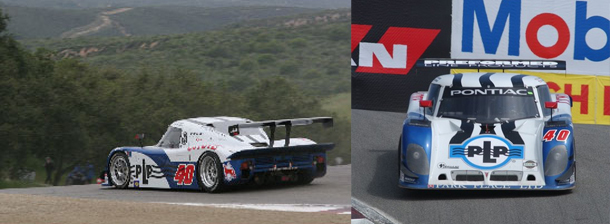THE CAR

Daytona Prototypes The top category in Grand American Road Racing and the undisputed stars of the Rolex Sports Car Series presented by Crown Royal Special Reserve, Daytona Prototypes are exotic, mid-engine machines that are purpose-built strictly for competition on the track. Low to the ground and capable of speeds in excess of 185 mph, Daytona Prototypes also feature the latest in safety technology, including carbon fiber side impact panels and a multi-point roll cage with a unique center post at mid-windshield. Daytona Prototypes are produced to similar specifications by seven approved constructors—Riley Technologies, Doran Designs, Crawford Race Cars, Fabcar Engineering, Chase Competition Engineering, Picchio and Multimatic. Although each chassis is independently designed and manufactured, competitor modifications are highly limited by Grand American rules and certain parts—including series-standard rear wings—are mandated by the series. A Daytona Prototype chassis costs about $400,000, but the cars can be raced in their current configuration for several years within Grand American’s stable rules package. Manufacturers are welcome to submit any production-based engine for approval in the series, but turbos and superchargers are not permitted. Engines that are currently approved for competition include powerplants from Pontiac (5-liter V-8), Lexus (4.3-liter V-8), BMW (5-liter V-8), Porsche (3.8-liter flat-six), Ford (5-liter V-8) and Infiniti (4.3-liter V-8). All engines are tuned to produce around 500 horsepower and each is capable of being mated to any of the approved Daytona Prototype chassis, which creates an interesting variety of chassis/engine combinations. Five- or six-speed sequential gearboxes from EMCO and XTrac are the series standard in Daytona Prototypes. Smaller-engined Daytona Prototypes under 4.5 liters are allowed the advantage of the six-speed gearboxes, while all race cars with larger engines must run the five-speeds. In addition to official and approved chassis designs and engines tuned to Grand American specifications, Daytona Prototype competition is further equalized through minimum race car weight. Daytona Prototypes with smaller engines can run at a lighter minimum weight than their counterparts with more power. Race cars fitted with engines under 4-liters can weigh in at 2,150 lbs. Engines in the 4-4.5-liter range require a minimum weight of 2,200 lbs. and Daytona Prototypes with engines over 4.5-liters and up to the maximum 5-liters must weigh in at a minimum of 2,275. |
